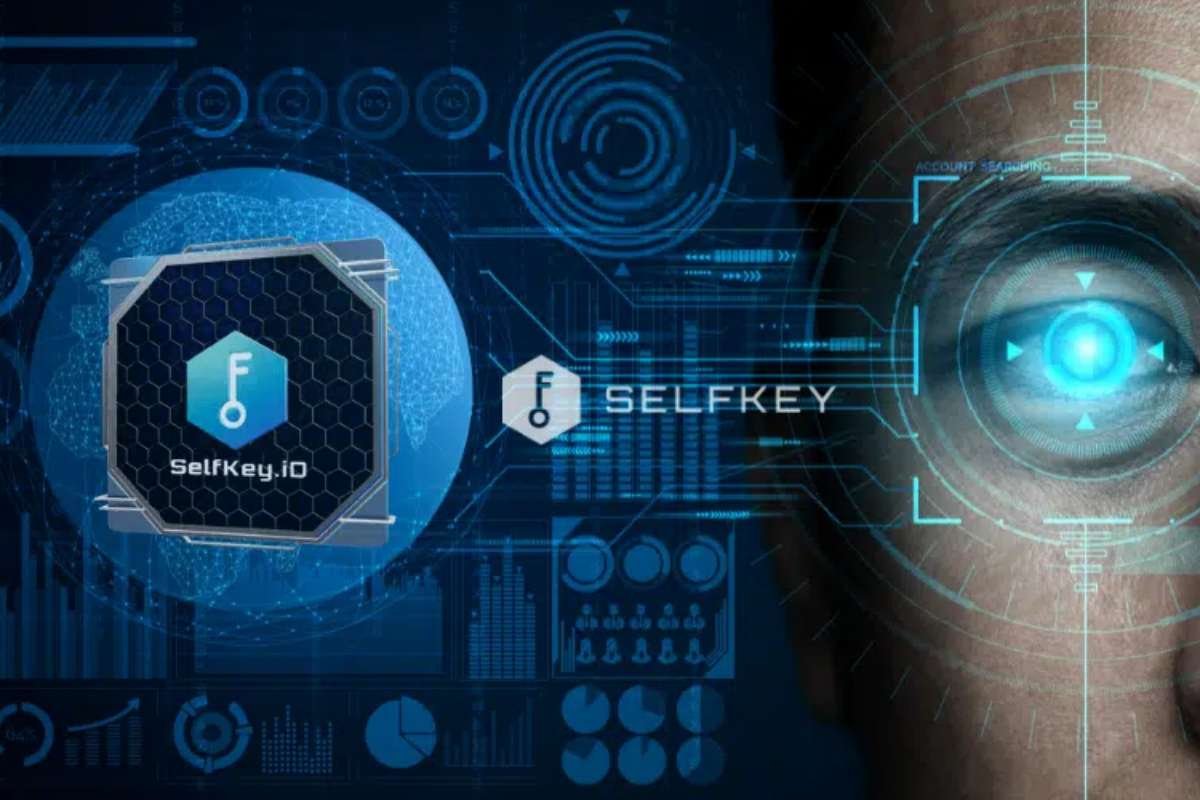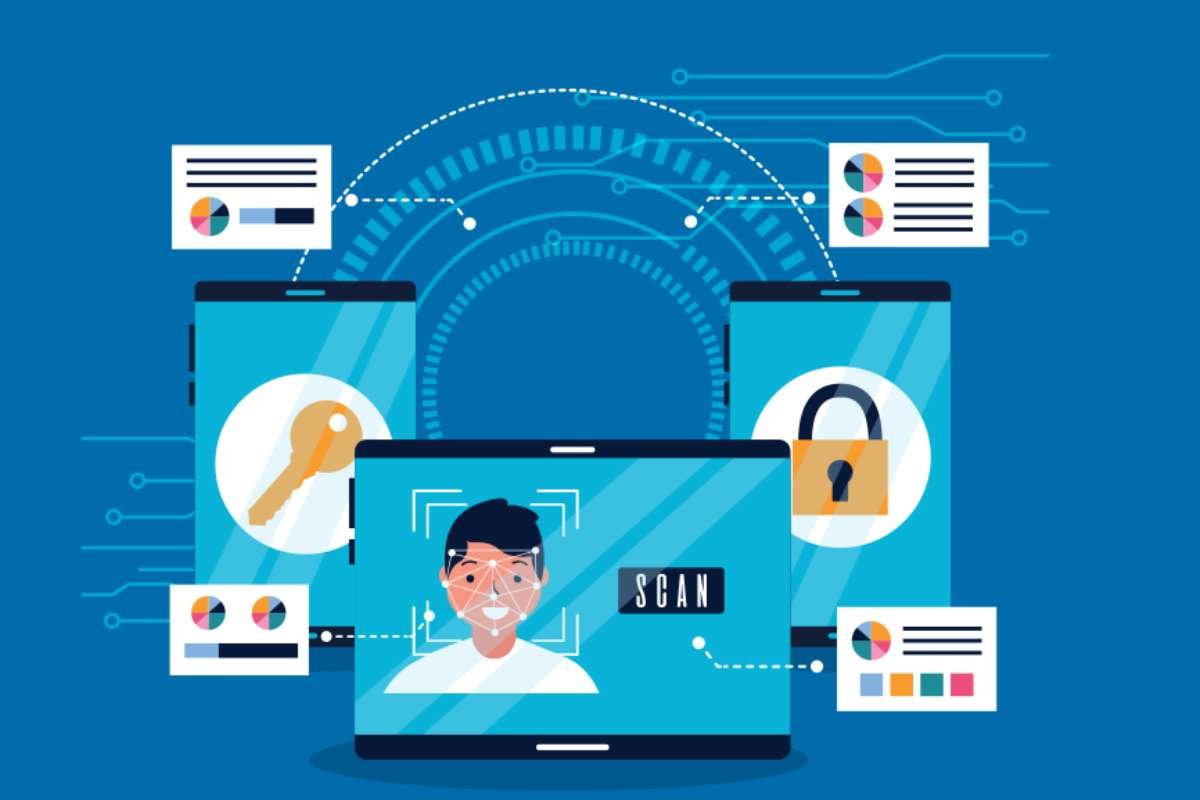In times when our identities are at risk of being breached, and getting cyber-attacks online, digital identity solutions have become more vital. Blockchain technologies are known for their segregated and secured framework, they are now cropping up to solve the issues of data privacy, security, and digital identity management. Blockchain digital identity companies are evolving as providers of advanced, secure identity solutions for individuals and companies. This article will explore the world of blockchain identity companies, and how they are shaping the future of secure digital identity.
Why Blockchain for Digital Identity?
Traditional digital identity solutions have often relied on centralized databases. While functional, these centralized systems present inherent risks such as single points of failure, making them vulnerable to data breaches. On the other hand, blockchain offers a decentralized approach where information is distributed across a network of nodes, making it exceptionally secure and virtually tamper-proof. This decentralized framework is ideal for digital identity management, as it secures data and gives users greater control over their personal information.
Blockchain digital identity companies leverage these attributes to create systems that are highly resistant to fraud and unauthorized access, enabling secure verification, enhanced privacy, and reduced dependency on middlemen. With a blockchain-based digital identity, individuals can verify their identity securely without disclosing more information than necessary.
Key Players in the Blockchain Digital Identity Space
Several blockchain digital identity companies are leading the way in developing innovative solutions that are revolutionizing how identity is managed online. Here’s a look at some of the top players:

- Civic: Civic is a well-known name in the blockchain digital identity space. It offers a platform where users can verify their identity in real-time without compromising their personal information. Civic leverages blockchain technology to create a secure, decentralized identity ecosystem. Users are in full control of their data, and businesses can quickly verify identities through the Civic app, which ensures data remains private and secure.
- uPort: Developed by ConsenSys, uPort is a pioneering blockchain-based identity management platform that gives users control over their data. With uPort, users create a unique, blockchain-based identity, manage access to their personal information, and decide who can access it. This project is built on the Ethereum blockchain and promotes self-sovereign identity (SSI), which emphasizes individual ownership and control over digital identity.
- SelfKey: SelfKey is another prominent name among blockchain digital identity companies. It uses blockchain to facilitate a wide range of identity verification processes, from KYC (Know Your Customer) for businesses to personal identity verification for individuals. SelfKey offers a secure, decentralized identity wallet that allows users to manage and protect their personal information, facilitating seamless identity management without third-party intermediaries.
- Jolocom: Jolocom aims to provide an open-source platform for self-sovereign identity. Jolocom enables users to create, manage, and share digital identity information on a decentralized network. By prioritizing open standards, Jolocom empowers developers and users to integrate decentralized identity solutions into various applications while maintaining full control over their data.
- Sphereon: Sphereon is among the blockchain digital identity companies that cater specifically to enterprise needs. Spherion focuses on streamlining the integration of blockchain technology into existing IT systems for businesses. It provides a blockchain-based identity service that ensures secure identity management for employees, clients, and users, supporting compliance with privacy regulations and enhancing security.
How Blockchain Digital Identity Companies are Transforming Security?
Blockchain digital identity companies are not just focused on improving personal security; they are also contributing to the global push for stronger data protection regulations. In light of the GDPR in Europe and similar privacy laws in other regions, blockchain-based identity solutions offer a compliant way to handle sensitive personal information.

- Data Ownership and Privacy: Blockchain technology gives users control over their digital identities, allowing them to grant or deny access to specific parts of their identity information. Unlike traditional identity verification systems, which often require users to share more data than necessary, blockchain solutions allow for selective disclosure. This means users can reveal only the essential information required for a particular transaction, enhancing privacy and reducing the risk of identity theft.
- Elimination of Central Points of Failure: Traditional identity management systems that rely on centralized servers are prone to attacks. In contrast, blockchain-based systems distribute data across multiple nodes, making it nearly impossible for hackers to compromise the entire network. Blockchain digital identity companies leverage this decentralized structure to minimize the risk of data breaches and enhance security.
- Self-Sovereign Identity: One of the most significant innovations by blockchain digital identity companies is the concept of self-sovereign identity (SSI). SSI empowers users by giving them complete ownership and control over their digital identity. Individuals can use their blockchain-based ID to authenticate themselves rather than relying on government or third-party entities for identity verification. This model puts users at the center of their identity management, reinforcing privacy and control.
- Compliance with Global Regulations: Compliance is a significant concern in digital identity management. Blockchain digital identity companies create solutions that align with global data protection regulations, making it easier for businesses to manage identity verification without violating privacy laws. Blockchain’s transparency and immutability make it an ideal solution for organizations needing to demonstrate regulatory compliance in handling personal data.
Challenges for Blockchain Digital Identity Companies
Despite the promise of secure, decentralized digital identities, blockchain digital identity companies face several challenges:
- Scalability: Blockchain networks often struggle with scalability. For blockchain digital identity solutions to become mainstream, they need to handle large volumes of transactions without compromising speed or security. Many companies are working on layer-2 solutions or sidechains to improve scalability, but this remains a hurdle to widespread adoption.
- User Adoption and Awareness: The concept of blockchain-based identity is still new to many. For widespread adoption, users need to understand the benefits of these solutions and how to use them effectively. Blockchain digital identity companies are investing in educational initiatives and user-friendly interfaces to address this.
- Interoperability: There are multiple blockchain networks, and for digital identity solutions to be effective, they must work across different platforms and ecosystems. Achieving interoperability between blockchain digital identity companies and ensuring that their solutions are compatible with various networks is a technical and operational challenge.
- Regulatory Uncertainty: As blockchain technology evolves, so does the regulatory environment around it. Blockchain digital identity companies must navigate changing regulations in various jurisdictions, ensuring compliance without sacrificing the decentralized principles that make blockchain-based identity so appealing.
The Future of Blockchain Digital Identity

Blockchain digital identity companies are at the forefront of transforming how identities are managed in the digital world. With continuous innovation in blockchain technology, these companies are developing solutions that can potentially replace traditional identity systems altogether. By providing a secure, user-controlled, and tamper-proof method of identity verification, blockchain-based digital identity solutions offer a future where identity fraud and data breaches are minimized.
The rise of self-sovereign identity and the adoption of decentralized identity solutions by both individuals and businesses indicate that blockchain digital identity is more than a trend—it’s a revolution. As blockchain technology matures and more people recognize the importance of privacy and data ownership, blockchain digital identity companies will play an increasingly central role in the digital landscape.
Conclusion
Blockchain digital identity companies are changing the way we look at digital identity, presenting resolution that primarily focuses on prioritizing security, privacy, and user control. Since the growth of secure identity management has increased, companies are working on a future where digital identity is not just about being more secure but also profoundly user-friendly. With ongoing advancements and rising adoption, blockchain digital identity solutions are expected to become a fundamental aspect of our online interactions, bringing us closer to a secure, privacy-respecting digital future.










